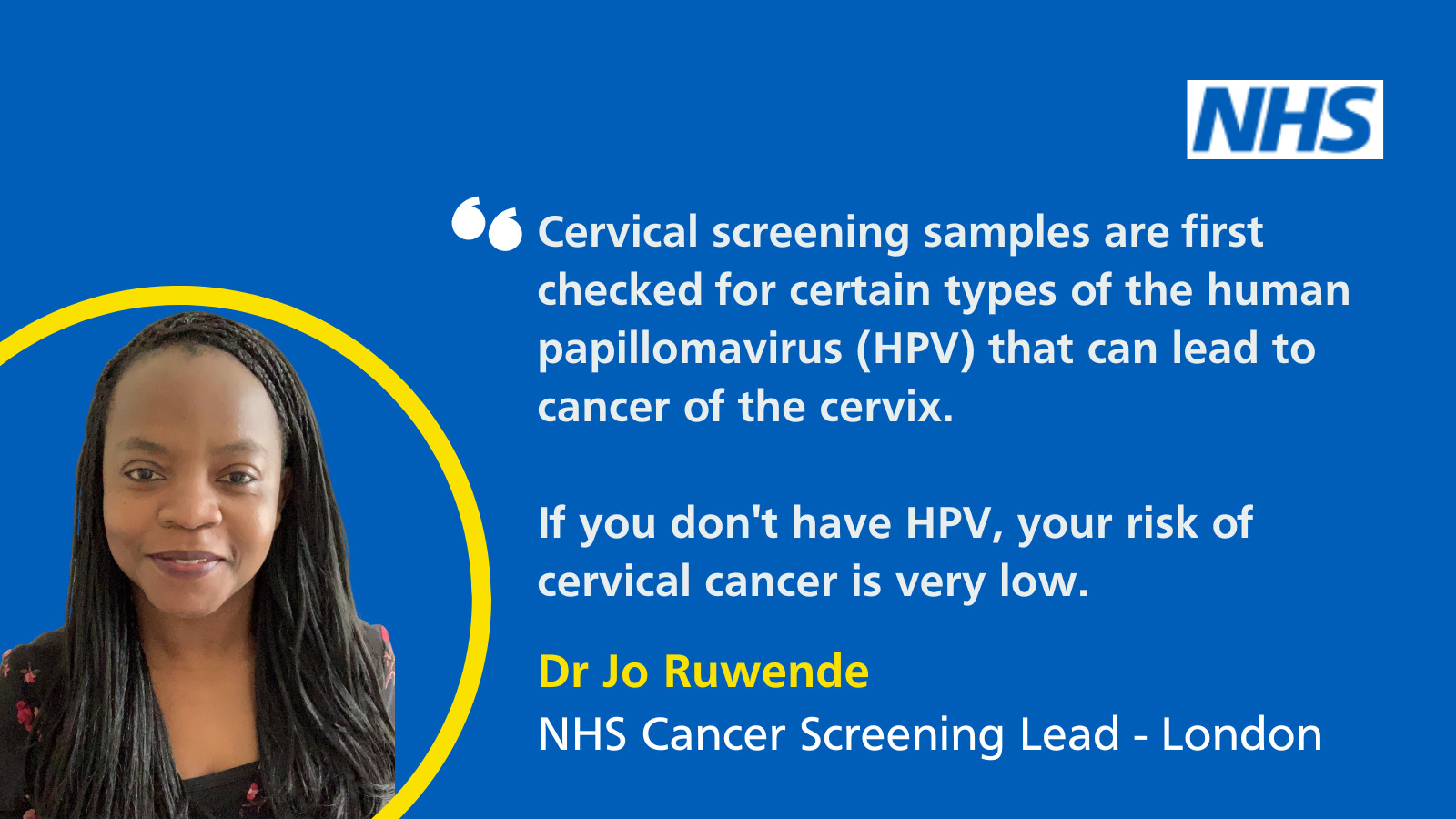Book your cervical screening if you’ve missed it this Cervical Screening Awareness Week 2023
This Cervical Screening Awareness Week (19 – 24 June 2023), the NHS is encouraging anyone who has received an invitation for cervical screening to book their appointment now.
Our health, Our Lambeth (Lambeth’s five year health and Care plan) sets out how Lambeth health and care services will work to ensure that people receive early diagnosis and support for physical health conditions.
NHS Cervical Screening Programme saves lives
The NHS Cervical Screening Programme saves thousands of lives every year by checking for high-risk Human Papillomavirus (HPV), a group of viruses that cause nearly all cervical cancers.
All women and people with a cervix aged 25-64 are eligible for cervical screening. In England, those registered as female with their GP practice will be invited for screening every three years if aged 25-49 and every five years if aged 50-64. Those registered as male will need to request an appointment from their GP practice or a local sexual health clinic.
High-risk HPV testing (performed at your cervical screening) is a more sensitive and accurate test than the previous method and is the best way to find out who is at higher risk of developing the cervical cell changes that over time could potentially lead to cervical cancer. Even if you’ve been vaccinated against HPV, it’s still important that you attend your cervical screening appointment when invited. Combined with the HPV vaccine, cervical screening could make cervical cancer a thing of the past.
Every screening we do is potentially saving a life. If you missed your last cervical screening, book an appointment with your GP practice now – it is not too late and the NHS is here to support you If you’ve received your invitation, call your GP practice to book as soon as possible – evening and weekend appointments may be available. Some local sexual health services also offer cervical screening.
Dr Jo Ruwende, NHS Cancer Screening Lead for London:
“Cervical screening samples are first checked for certain types of the human papillomavirus (HPV) that can lead to cancer of the cervix. If you don’t have HPV, your risk of cervical cancer is very low.”
Find out more about cervical screening at nhs.uk/cervicalscreening
